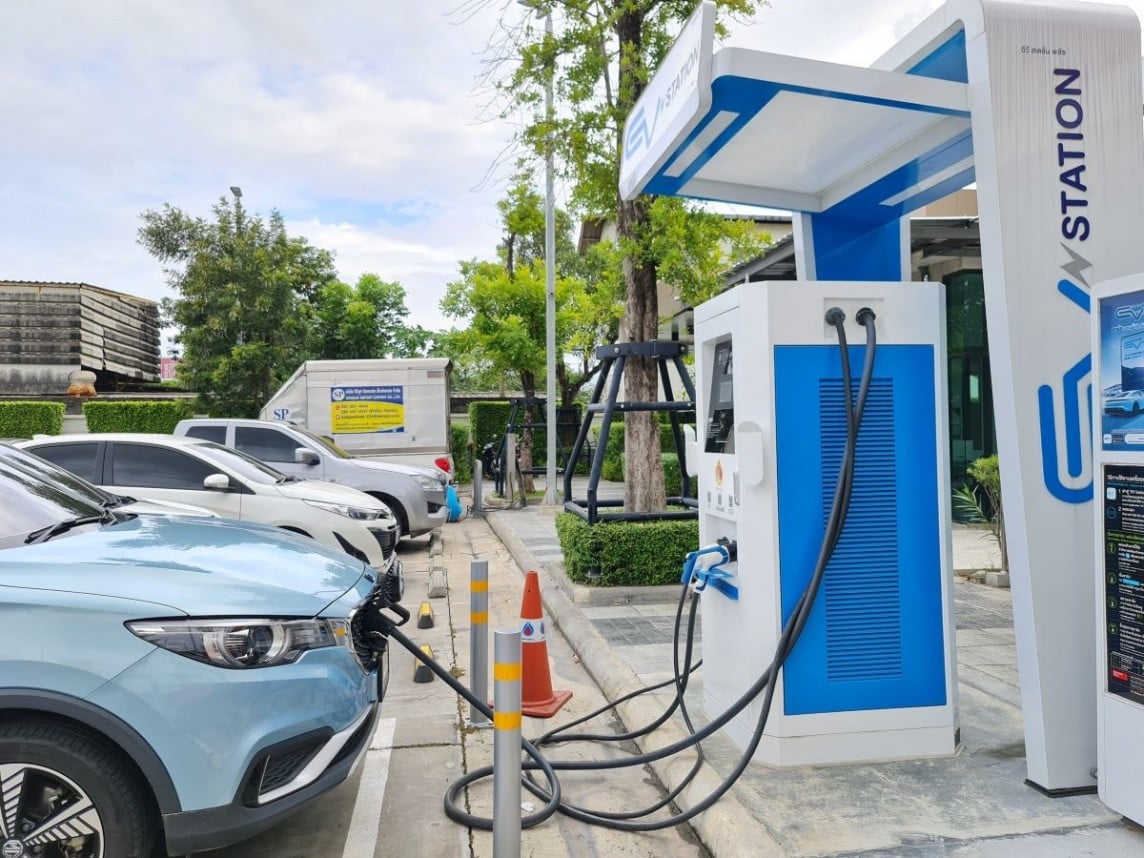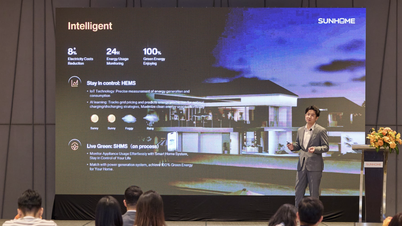| Global electric vehicle market in the context of economic recession Why are automakers adjusting their electric vehicle strategies? |
2023 was a record year for electric vehicles (EVs). Global sales of all-electric and plug-in hybrid vehicles rose 31% last year to 13.6 million units, according to market research firm Rho Motion.
Asia is the “battlefield” of the electric vehicle market, with China leading the way. More than 8 million electric vehicles were sold in the country alone last year. Now, Xiaomi, one of the world’s largest smartphone makers, has joined the electric vehicle battle in Asia. The Chinese smartphone maker officially launched its SU7 Series electric sedan at the end of March.
 |
| Competition in the electric vehicle market is heating up. |
At 299,900 yuan ($41,500), the SU7 costs less than half the price of electric cars offered by Tesla. It took Xiaomi only about five years to climb the smartphone ladder. Xiaomi plans to offer cars in all electric categories. The plus side could be that the company already has a large customer base as a leading global smartphone maker.
Xiaomi is the third-largest automaker behind Apple and Samsung, according to researcher IDC. But competition is fierce. BYD, a Chinese company that started making cars the same year as Tesla just over 20 years ago, produced more than 3 million cars last year, including 1.6 million battery-only vehicles and 1.4 million hybrids.
Blue Lotus Research Institute, which posted on Smartkarma, estimates that Tesla and BYD will each lose 1,000 to 1,500 units per month (to Xiaomi). BYD dominates the electric vehicle market in China with a 33.8% share in 2023, followed by Tesla (7.5%), GAC Aion (6.0%), SAIC-GM-Wuling (5.8%), Li Auto (4.7%), Changan (4.3%) and Geely (4.1%).
BYD, Geely and Nio – all have global ambitions. For example, EU customs data shows that Chinese electric vehicle imports into the EU increased 112% year-on-year in the first seven months of 2023 and 361% in 2021. BYD’s Atto 3 was the best-selling electric compact SUV in Europe last year. BYD now has factories around the world, including in Brazil, Hungary and India.
Those who have seen the company’s factories praise its technology—the only people seen on the factory floor are inspecting finished cars or repairing robots. Other Chinese brands to watch include Dongfeng, SAIC (owner of the MG brand), Nio, and Xpeng.
At this stage in the market’s development, it can be difficult to determine which EV manufacturer will emerge as the leader – especially since it is difficult to predict which new manufacturers will successfully penetrate the European, Latin American and North American markets. While EVs come in a wide range of price points and features, they all share one thing in common: many of the necessary electrical components are the same. As a result, suppliers are better positioned to deliver EV revenue growth than global automakers.
Source



![[Photo] President Luong Cuong presents the decision to appoint Deputy Head of the Office of the President](https://vphoto.vietnam.vn/thumb/1200x675/vietnam/resource/IMAGE/2025/5/8/501f8ee192f3476ab9f7579c57b423ad)
![[Photo] General Secretary concludes visit to Azerbaijan, departs for visit to Russian Federation](https://vphoto.vietnam.vn/thumb/1200x675/vietnam/resource/IMAGE/2025/5/8/7a135ad280314b66917ad278ce0e26fa)
![[Photo] National Assembly Chairman Tran Thanh Man chairs the meeting of the Subcommittee on Documents of the First National Assembly Party Congress](https://vphoto.vietnam.vn/thumb/1200x675/vietnam/resource/IMAGE/2025/5/8/72b19a73d94a4affab411fd8c87f4f8d)
![[Photo] Prime Minister Pham Minh Chinh meets with the Policy Advisory Council on Private Economic Development](https://vphoto.vietnam.vn/thumb/1200x675/vietnam/resource/IMAGE/2025/5/8/387da60b85cc489ab2aed8442fc3b14a)


























































![[Photo] Prime Minister Pham Minh Chinh talks on the phone with Singaporean Prime Minister Lawrence Wong](https://vphoto.vietnam.vn/thumb/402x226/vietnam/resource/IMAGE/2025/5/8/e2eab082d9bc4fc4a360b28fa0ab94de)

































Comment (0)